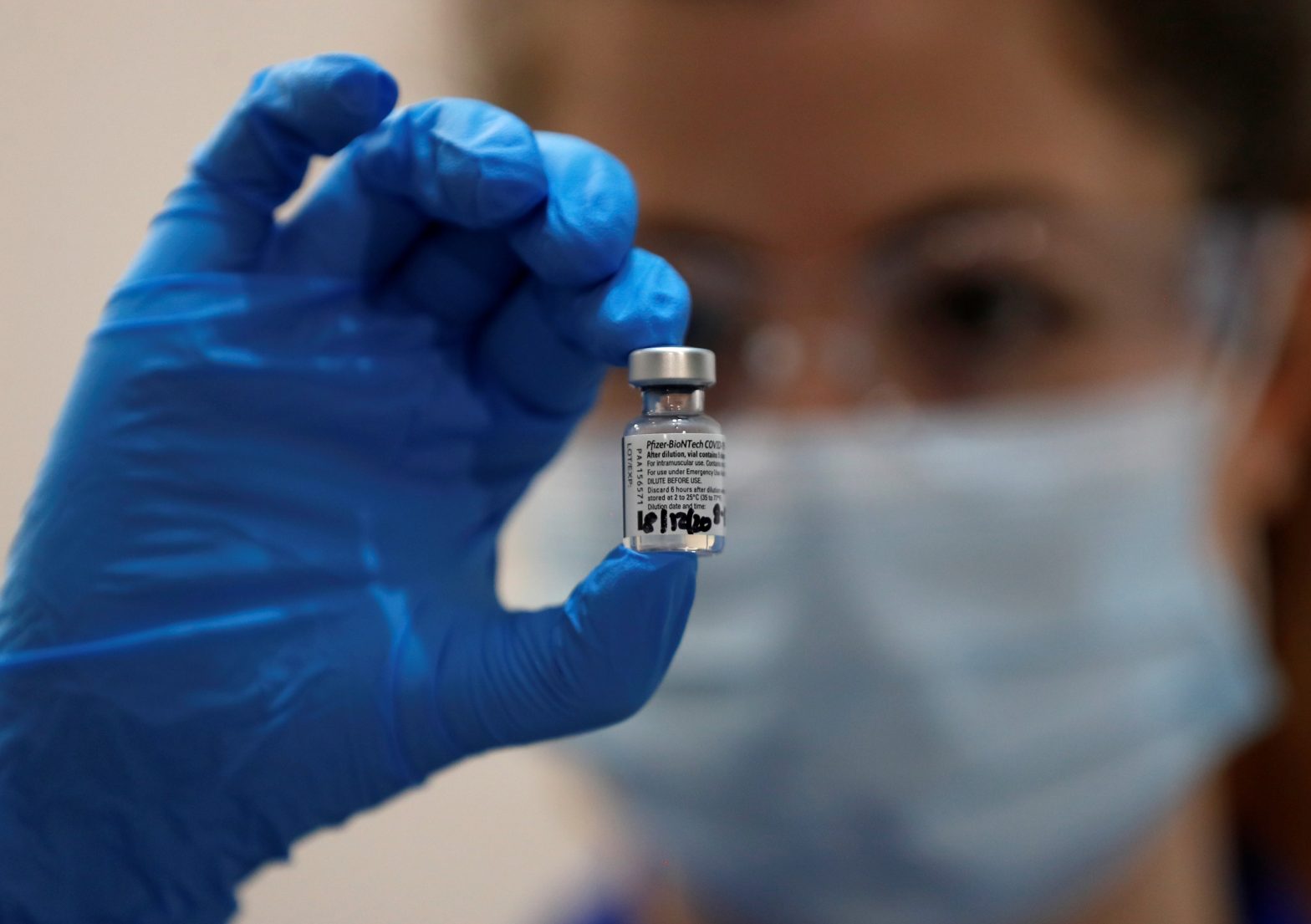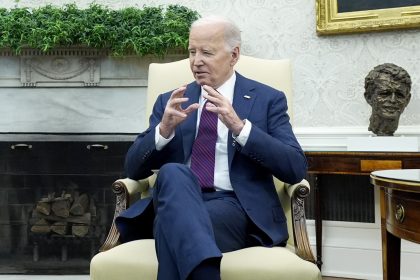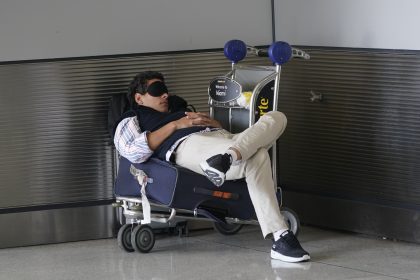FDA Issues Emergency Approval for Pfizer Vaccine, Others Sure to Follow

WASHINGTON – Under intense pressure from the White House, the Food and Drug Administration dramatically moved up its timeline, issuing an emergency authorization for Pfizer’s COVID-19 vaccine on Friday.
The agency had initially planned to finalize its authorization on Saturday, but that pace infuriated President Donald Trump who blasted the agency on Twitter, calling it “a big, old, slow turtle.”
In the same tweet, Trump personally assailed FDA Commissioner Dr. Stephen Hahn, writing “Get the damn vaccines out Now, Dr. Hahn … Stop playing games and start saving lives.”
Later, White House Chief of Staff Mark Meadows reportedly called Hahn to complain the agency was moving too slowly to make an announcement on the vaccine’s authorization.
Following the call, Hahn told regulators at the Center for Biologics Evaluation and Research at the F.D.A. to issue the emergency authorization by the end of the day.
Federal officials have said 2.9 million doses could be sent around the country within days, about half of the doses that Pfizer and its German partner BioNTech SE will provide in the first week.
The other half will be reserved so that the initial recipients can have the second, required dose about three weeks later.
First in line to get it are health care workers and nursing home residents.
However a rash of recent polls show most Americans have mixed feelings about taking a COVID-19 vaccine.
A Gallup poll of 2,968 adults conducted in late November found 63% of Americans would agree to be vaccinated against the coronavirus if the shot was “available right now at no cost.”
But the other 37% said they would not agree to be vaccinated.
Further, a December poll from The Associated Press-NORC Center for Public Affairs Research found that roughly half of Americans are skeptical about promising new coronavirus vaccines and need more assurances from medical experts before rolling up their sleeves.
The pollsters also found that about a quarter of U.S. adults have concerns about getting vaccinated against the coronavirus. Another quarter said they absolutely would not get a vaccine.
It should be noted the later poll was conducted after the U.K.’s National Health Service issued a health warning on the first day of vaccinations after Pfizer ‘s vaccine triggered severe allergic reactions in a pair of early recipients.
The National Health Service warning said people with a significant history of allergies should not receive the vaccine.
“As is common with new vaccines the [Medicines and Healthcare Products Regulatory Agency] have advised on a precautionary basis that people with a significant history of allergic reactions do not receive this vaccination,” Stephen Powis, national medical director for the NHS in England, said in a statement.
Pfizer and BioNTech said they supported the MHRA undertaking an investigation into reactions.
The Pfizer/BioNTech vaccine has also raised concerns because while it prevents symptomatic cases of the virus, it is still not clear if the shot keeps the disease from being transmitted.
The conclusion by the FDA highlights a major unknown about vaccine candidates that persists ahead of an ambitious U.S. rollout of millions of shots: how effective they’ll be in stemming the spread of coronavirus at a population level.
So what do we currently know about the coming COVID-19 vaccines?
Pfizer
The Pfizer/BioNTech vaccine is one of two on track for emergency FDA authorization this month, the other coming from drugmaker Moderna.
Both are the product of an all-out global race to identify a vaccine less than a year after the virus they’ve been created to eradicate was identified.
After reanalyzing data provided by Pfizer, scientists at the FDA concluded the vaccine is more than 90% effective across a population of patients of different ages, races and underlying health conditions.
And the FDA specifically confirmed that the vaccine appears to work well in older people, who are considered to be especially vulnerable to the coronavirus.
The agency said partial protection appears two weeks after the first dose of the Pfizer shot, and greater protection seems to last at least two months after the second and final dose administered three weeks later.
The main side effects were injection-site pain or flu-like reactions that tend to last a day or two.
More than half of adults under 55 experienced fatigue or headache, about a third reported chills or muscle pain, and 16% had a fever. Older adults were less likely to experience those reactions, the agency said.
Moderna
During an interview with FOX Business’ Maria Bartiromo on Friday, Health and Human Services Secretary Alex Azar said Pfizer’s emergency authorization later today could also speed the emergency approval of Moderna’s vaccine.
That approval could come as early as next week, he said.
He also noted that while the two vaccines are similar, Moderna’s, which was developed with the U.S. National Institutes of Health, is more “flexible.”
“The Pfizer and Moderna vaccine are both what are called messenger R&A vaccine, that is the vehicle used to create the immunogenicity,” Azar explained.
“So very similar technological platforms but the Moderna vaccine doesn’t have the same cold chain storage requirements that the Pfizer one does and it also comes in a more flexible packaging size,” he said.
The Pfizer vaccine must be transported at super-cooled temperatures, and comes in batches of 975 doses. Each vial contains 5 doses, so careful planning for administering the vaccine is a must.
The administration has prepared detailed videos for providers on how to safely prepare and administer doses, to be posted after the FDA issues its emergency use authorization.
“We have a smaller number of doses. Everything about the Moderna one is more flexible and easier for us to administer than the Pfizer,” Azar added.
AstraZeneca
A third option, from AstraZeneca and Oxford University, appears safe and about 70% effective, according to early test results from Britain and Brazil.
But that report, in the medical journal Lancet, showed that questions remain about how well it helps protect those over 55.
The Lancet report was based on partial results from tests of the vaccine in the United Kingdom, Brazil and South Africa — safety results on 23,745 participants and protection levels on 11,636.
And there’s a significant challenge to interpreting them — a mistake during trials led some participants to get a half dose followed by a full one rather than two full doses as intended.
Researchers claim the vaccine protects against disease in 62% of those given two full doses and in 90% of those initially given the half dose.
However, independent experts have said the second group was too small — 2,741 people — to judge the possible value of that approach and that more testing is needed.
Still, hopes remain high for the AstraZeneca vaccine because it can be shipped and stored at normal refrigerator temperatures unlike the others that require freezing until a few hours before they’re given.
Sinovac
Chinese vaccine company Sinovac is currently conducting the last stage of clinical trials for its vaccine candidate in Brazil, Turkey and Indonesia and is among the frontrunners of China’ s vaccine efforts.
The company’s progress on the vaccine inspired Sino Biopharmaceutical Ltd., a pharmaceutical conglomerate, to buy a 15% stake in Sinovac last month for a reported $500 million.
The funds will allow the company to “improve our vaccine sales capabilities, expand in Asia markets, develop and access new technologies, and most importantly, accelerate our efforts to help combat the global pandemic,” Sinovac CEO Yin Weidong said in a statement.
Sinovac’s candidate is a two-dose inactivated vaccine, in which a live virus is killed and then purified.
It can be stored at 2 to 8 C (36 to 46 F), within the range of a normal refrigerator.
Sinovac’s experimental vaccine is currently approved for emergency use in China, although it has not yet obtained final market approval.
Under emergency use, it has been distributed to groups the Chinese government deemed suitable, including front-line medical workers and border personnel.
Sanofi and GlaxoSmithKline
Drugmakers Sanofi and GlaxoSmithKline said Friday that their potential COVID-19 vaccine won’t be ready until late next year because they need to improve the shot’s effectiveness in older people.
The companies said early trials showed the vaccine produced an “insufficient” immune response in people over 60 because it didn’t contain enough of the material that triggers the production of disease-fighting antibodies.
They said they plan to reformulate the vaccine and do more testing, which is likely to delay approval to the fourth quarter of 2021 from the middle of the year.
“The results of the study are not as we hoped,’’ Roger Connor, president of London-based GSK Vaccines, said in a statement.
As for the Pfizer vaccine, once mass vaccinations get underway, the government intends to conduct unprecedented monitoring of recipients to watch for any side effects that didn’t show up during testing.

























